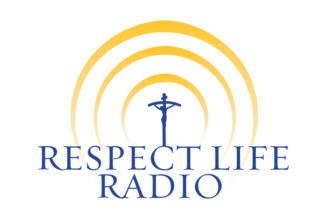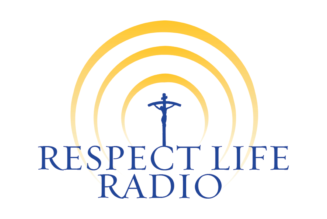There’s a lot of scolding going on.
So much scolding. All the scolding! Just… a lot.
Scolding, along with posturing, virtue signaling, and presumption of motives.
I really don’t know a way out. I am resisting the temptation to, you know, scold.
But every day, I wonder,
What happened to #Resist?
And moving back the referential point a few decades:
What happened to “Question authority?”
It’s funny, sad and weird. But not so weird, because this is just human nature and human behavior: to follow crowds, to get caught up in mass hysteria and to be so, so selective in our outrage and judgment.
What seems to be at the heart of so much of the fraughtness of public discussion on the response to Covid-19 is, no matter what “side” you are on, is an insistence on the absolute veracity of the evidence supporting your side, invariably accompanied by an insistence on the condemnation-worthy motives of those you see as your opponent.

I’m sure students of rhetoric and argument have categories for all of that.
I find the first point – the insistence of the absolute veracity of your “evidence” – as amusing and incomprehensible, for the most part. More on that in a bit.
And I find the second point – the judgment and condemnation of your opponents’ motives – as predictable, since the internet seems to have exacerbated that very common tic.
But you put those together, and you get massive toxicity, which is deeply unhelpful in maintaining any civil society, making wise public policy decisions or helping anyone grow in wisdom or charity.
And you see it in the Catholic world, too. Proclamation of infallibles, invariably accompanied by hurling of excommunications.
You call yourself pro-life.
You say you care about the common good.
I’m not offering a simple formula. How to Discuss a Pandemic Without Losing Your Mind or Your Soul.
I wish.
But I’m just saying – skepticism is…fine.
What do I mean by “skepticism?” I mean simply an attitude that accepts how little we know about anything: about cause and effect, about what helps and hurts, about institutional and individual motives.
And above all, it’s an attitude that understands the existence of a specific reality that we know for sure exists, even if we can’t be certain about anything else:
Unintended Consequences.
They. Will. Come. And they bite.
It’s not an invitation to paralysis or agnosticism. It’s an invitation to realism and charity and most of all, humility.
So:
- “Science” is wrong all the time, and always has been. “Science,” in fact, learns and grows from its mistakes and misapprehensions and limitations. There is no particular virtue in waving the flag of “the science says.” “The Science” has said a lot of bonkers things over the years.
- With a moving target, a newly-emerged illness like this, of course the “science” is going to change and develop – we do what we can with the knowledge we have, adjust and change as new knowledge comes forth, and knowing this, it’s okay to have healthy skepticism about any current status. That’s not the same as dismissing – it’s simply humility.
- Skepticism about science as it converges with government and/or with profit-making is absolutely called for. This kind of skepticism doesn’t make you a “conspiracy-monger” (remember what I said about presuming motives?) It might just mean you know about things like the Tuskegee Study, the Guatemala Syphilis Study, the American military Mustard Gas study….and countless others. As well as the ways in which the results of scientific studies are massaged and controlled in order to promote products or desired results by research labs, corporations and other entities.
- Skepticism about social and civil response to crisis. We can get things very wrong. We can go down wrong paths. It’s happened. We can enslave, oppress, put people in internment camps, experiment on vulnerable populations, engage in unjust wars and commit atrocities. To put the brakes on and question is a good thing.
- Skepticism about social and civil response to crisis because of incomplete information and because of the motives of those with vested interests in certain outcomes. Who’s profiting from this – is not an unreasonable question.

And see..here’s the thing. We know this. We look back on history and we’re amazed at how gullible people were, how unquestioning their trust was, how their fears moved them to support injustice. But somehow, when we get in the midst of a crisis like this, it becomes a thoughtcrime to apply the questions we willingly ask of the past to the present.
…you’d think we’d know better.
Short Version of all of this: To gripe about the inefficiencies, dishonesty, graft and corruption of government in the past, to note mistaken, misleading, outright deceptive and self-aggrandizing postures from science, tech and other entities, especially in crisis, in the past, to be explore serious issues of economic inequality and exploitation and the balance between economic and human cost of our actions in the past – but then to treat similar concerns about the present as simply beyond the pale – makes no sense.
And I could go on. Okay, I will.
- Skepticism about lockdowns. To want everything shut down for safety? Sure. Tell me about it. Talk about it. What’s your experience? To want things opened up to various degrees? To be concerned about the cost, about jobs lost, about schooling interrupted, about lives interrupted, about domestic abuse, about loneliness? Sure. Tell me about it. Talk about it. What’s your experience? Neither perspective makes you a monster. Let’s talk about why you think what you do, why you propose your particular solution.
- Skepticism about the long-term consequences of government action in a moment of crisis. Patriot Act, etc.
- Skepticism about various individuals and entities stake in a lockdown situation. Sure, why not? Dig through it. Question why Amazon and the Walton family should enjoy amazing profits right now. Question the stimulus bills and who’s getting what and why.
- Skepticism about the response of health care institutions and the more general impact on public health. Asking questions about the impact of current restrictions on treatment of non-Covid-related conditions – on the availability of services, on reduction of services, particularly in already underserved areas, on the unwillingness of those suffering to seek help, either out of fear of contracting Covid or – just as powerfully – the fear that if something is found wrong and they must be treated – they will be going at it alone, with No Visitors Allowed. Asking questions about that, wondering what the right course is to balance the risk of infection with treatment of non-Covid ailments and the mental health of patients – does not mean you want to kill grandma or HONESTLY HOW CAN YOU CALL YOURSELF PROLIFE. MONSTER.
- Skepticism about information and information sources. Agendas, biases, motives. All there, all worth exploring, nothing taken for granted.
And now…the Church.
Lots and lots of scolding out there, sniffing for the travails of our poor bishops. Well, maybe. I know a few, and sure, this is not easy. There are so many factors to consider and balance, and many, many clergy and others in pastoral ministry find this truly agonizing and difficult.
But again. Given history? It’s okay to be skeptical and to ask questions. From the perspective of humility and respect, but sure. Given history – that no, it is not true that Church officials always make decisions with the common good in mind and are never craven, lazy, protective of turf, fearful or indifferent to their most profound responsibilities to God and to the faithful –
….yeah…
Remember what I said about not judging motives? Yup, that applies here, too. Not assuming anything, not judging decisions we know nothing about.
But …asking questions and posing them and exploring different options? In a spirit of humility and co-operation? And being willing to answer and discuss, rather than dismiss with platitudes?
Absolutely necessary.
Robust discussion of facts and figures and policies is so important in a crisis, but it’s just as important that this discussion happen in a spirit of humility – about the information we have and the motivations of those who might disagree with our perspective.
I do not, for the life of me, understand why it’s seen as acceptable, especially among those who call themselves Christian, to respond to disagreement with, “Well, you obviously just…” instead of “Okay. I’m interested in your perspective. Why do you think that? Let’s talk about it some more.”









